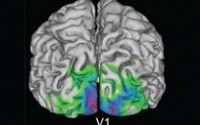Reading the brain: Clinical evidence and implications for ethical decisions
- Date
- 5 Apr 2011
- Start time
- 7:30 PM
- Venue
- Tempest Anderson Hall
- Speaker
- Prof Joanna Wardlaw

Reading the brain: Clinical evidence and implications for ethical decisions
Professor Joanna Wardlaw
Centre for Clinical Brain Sciences
University of Edinburgh
Report
by Carole Smith
Professor Wardlaw was unable to deliver her lecture, and Professor Green stepped in at short notice to great effect.
It is possible to use a magnetic resonance scanner to demonstrate anomalies and abnormalities in, and shrinkage of the brain; it can detect tumours, and also activity in an otherwise non-functioning injured brain. It provides the potential for predicting, and therefore conceivably preventing such undesirable outcomes as Alzheimers, Parkinsons, and psychosis. But what is normal? When is it too late to start treatment? Is psychosis entirely bad?
Ethical questions are raised where there is no cure, or the research is unproven, or where there is temptation to treat symptom-less, but potential, psychotics. In research, what should be said to the volunteer when an incidental finding may indicate disease? Should an unconscious patient be scanned? Where there is pressure on intensive-care beds, what are the ethical criteria for continuing to keep alive patients in a persistent vegetative state when some have been known to recover? These ethical questions provided a challenging close to this group of lectures.